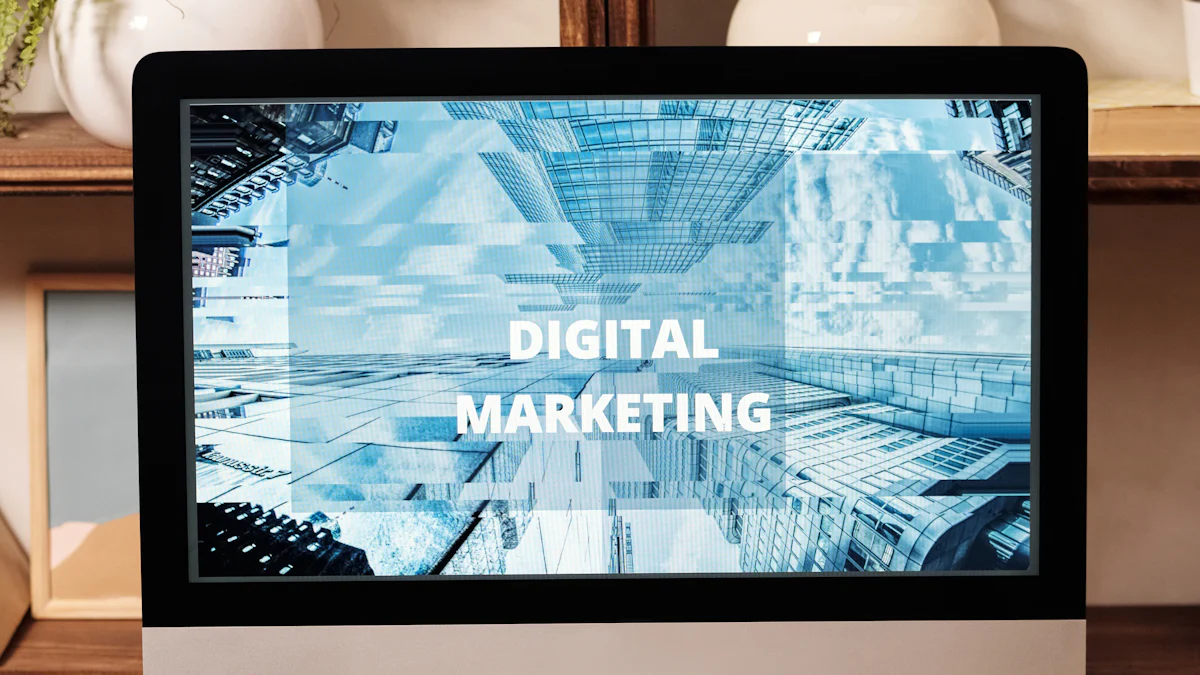
Evolving Agency Structures
The landscape of agency organization within advertising firms is currently experiencing significant transformations as a result of the profound impact of digital marketing. These changes are reshaping the traditional advertising agency structure, leading to a shift in how these organizations operate and deliver services. As digital marketing continues to influence the industry, the evolution of advertising agency structure becomes increasingly crucial for staying competitive and relevant in the ever-changing market.
Digital Marketing Impact
The influence of digital marketing has led to a notable shift in the advertising landscape, particularly in the way agencies structure their operations and deliver services.
Shift to Online Platforms
The increasing emphasis on online platforms and digital channels has significantly altered the traditional advertising landscape. As consumer behavior continues to evolve, there is a growing focus on reaching audiences through online mediums.
Digital marketing has prompted a greater emphasis on targeted advertising and personalized messaging, as brands strive to engage with consumers in more meaningful ways within the digital space.
Data-Driven Strategies
Data analytics and consumer insights have become integral components of digital marketing strategies. Advertising agencies are leveraging data to optimize ad placements and measure campaign performance, allowing for more precise targeting and effective allocation of resources based on real-time insights into consumer behavior.
Restructuring Strategies
Integration of Digital Teams
In response to the demands of digital marketing, advertising agencies are strategically integrating specialized digital teams into their organizational structure. These teams are equipped with the expertise to navigate the complexities of online platforms and execute targeted digital campaigns effectively.
Cross-functional collaboration between traditional and digital teams is pivotal for the successful restructuring of agency organizations. By fostering a cohesive environment where diverse skill sets converge, agencies can harness the strengths of both traditional and digital approaches to deliver comprehensive and impactful marketing solutions.
Agile Organizational Frameworks
The adoption of agile frameworks has become increasingly prevalent as agencies seek to adapt to the fast-paced nature of digital marketing. Embracing agility allows organizations to swiftly respond to market changes, consumer trends, and emerging technologies, enabling them to remain competitive in an ever-evolving landscape.
Flexibility and rapid decision-making are fundamental aspects of the restructured agency model. By embracing agile organizational frameworks, agencies can streamline processes, optimize resource allocation, and swiftly capitalize on emerging opportunities within the dynamic realm of digital marketing.
Future Trends and Adaptation
Embracing Technology Innovations
The evolution of advertising agencies is intricately linked to the embrace of cutting-edge technologies such as AI (Artificial Intelligence) and AR (Augmented Reality). These innovations are poised to revolutionize the way brands interact with consumers, presenting immersive and personalized experiences that transcend traditional marketing approaches. By integrating AI and AR into their service offerings, agencies can deliver innovative solutions that resonate with modern audiences, thereby ensuring their relevance in the digital age.
Diversification of Service Offerings
As the digital landscape continues to expand, advertising agencies are diversifying their service portfolios to encompass a wide array of digital marketing solutions. This strategic move is driven by the evolving needs of clients and consumers who seek comprehensive and integrated strategies to engage with their target audiences effectively. By offering an extensive range of services, including social media management, influencer marketing, and content creation tailored for various digital platforms, agencies can position themselves as versatile partners capable of meeting diverse marketing objectives.
Impact on Creative Processes
Adapting Content Creation
The shift towards digital marketing has sparked a fundamental reevaluation of content creation and storytelling within advertising agencies. With the increasing emphasis on online platforms and personalized messaging, creatives are exploring new formats and platforms to effectively engage audiences in the digital space. This evolution necessitates a departure from traditional approaches to content creation, prompting a more dynamic and adaptive mindset among creative teams.
Incorporating Interactive Elements
In the realm of digital advertising campaigns, interactive and immersive experiences have become essential for capturing audience attention and fostering meaningful brand interactions. The incorporation of interactive elements represents a significant departure from the conventional creative process, requiring a strategic shift towards integrating interactive features seamlessly into ad campaigns. This adaptation is crucial for enhancing user engagement and creating memorable brand experiences in the digital age.
Creative Agency Org Chart: The integration of interactive elements into the creative process necessitates a collaborative approach involving cross-functional teams to ensure seamless execution across various digital platforms.
Adapting to the Digital Age
As advertising agencies navigate the impact of digital marketing, adaptation and innovation are key to thriving in the digital age. Embracing technological advancements and diversifying service offerings are essential for staying competitive and meeting the evolving needs of clients and consumers.
Embracing Technology Innovations: The future of advertising agencies lies in embracing emerging technologies such as AI and AR. These innovations are poised to revolutionize the way brands interact with consumers, presenting immersive and personalized experiences that transcend traditional marketing approaches.
Diversification of Service Offerings: Agencies are expanding their service offerings to encompass a wide range of digital marketing solutions. Diversification is essential for meeting the evolving needs of clients and consumers who seek comprehensive and integrated strategies to engage with their target audiences effectively.
In conclusion, the ability to adapt to the digital age will define the success of advertising agencies in a rapidly changing landscape. By leveraging technology, embracing agility, and redefining creative processes, agencies can position themselves as innovative leaders in the digital marketing realm.
See Also
The Influence of OOH Marketing on Advertising: Standing Out in the Marketplace
Starting an Advertising Firm: A Complete Handbook for 2024
Building an Advertising Firm: A Complete Handbook for 2024
